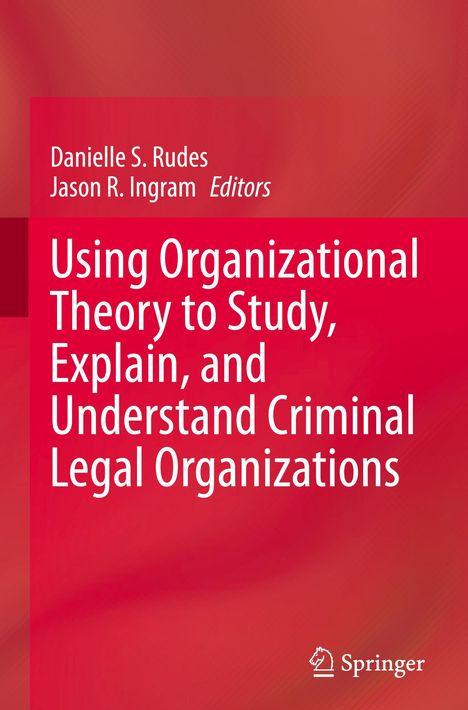Using Organizational Theory to Study, Explain, and Understand Criminal Legal Organizations, Gebunden
Using Organizational Theory to Study, Explain, and Understand Criminal Legal Organizations
(soweit verfügbar beim Lieferanten)
- Herausgeber:
- Jason R. Ingram, Danielle S. Rudes
- Verlag:
- Springer Nature Switzerland, 09/2024
- Einband:
- Gebunden, HC runder Rücken kaschiert
- Sprache:
- Englisch
- ISBN-13:
- 9783031662843
- Artikelnummer:
- 11974230
- Umfang:
- 308 Seiten
- Nummer der Auflage:
- 2024
- Ausgabe:
- 2024
- Gewicht:
- 629 g
- Maße:
- 241 x 160 mm
- Stärke:
- 23 mm
- Erscheinungstermin:
- 21.9.2024
- Hinweis
-
Achtung: Artikel ist nicht in deutscher Sprache!
Klappentext
This book explicitly and intentionally uses organizational theory concepts and ideas to examine key issues in the criminal legal realm. Addressing some of the many organizational theories, this volume examines a variety of approaches and theoretical frameworks to explore and explain challenges that are both presented to and faced by the criminal legal system and the individuals served by or working within it.
This volume is divided into two parts: organizational theories and organizational concepts and ideas. Within these parts, individual chapters provide readers with new lenses or frameworks for considering criminal legal organization, including one that involves organizational theoretical explanations for how and why criminal legal organizations and their staff and workers operate in these critically salient spaces.
The book concludes with a chapter that outlines important considerations for anyone seeking to learn or teach organizational theory as a way of explaining or understanding criminal legal organizations. Additional reading suggestions and two sample syllabi are provided.
The book is ideal for criminal justice and criminology undergraduate and graduate students, but is also relevant to individuals considering criminal legal organizations in courses in sociology, law and society, and organizational behavior.

